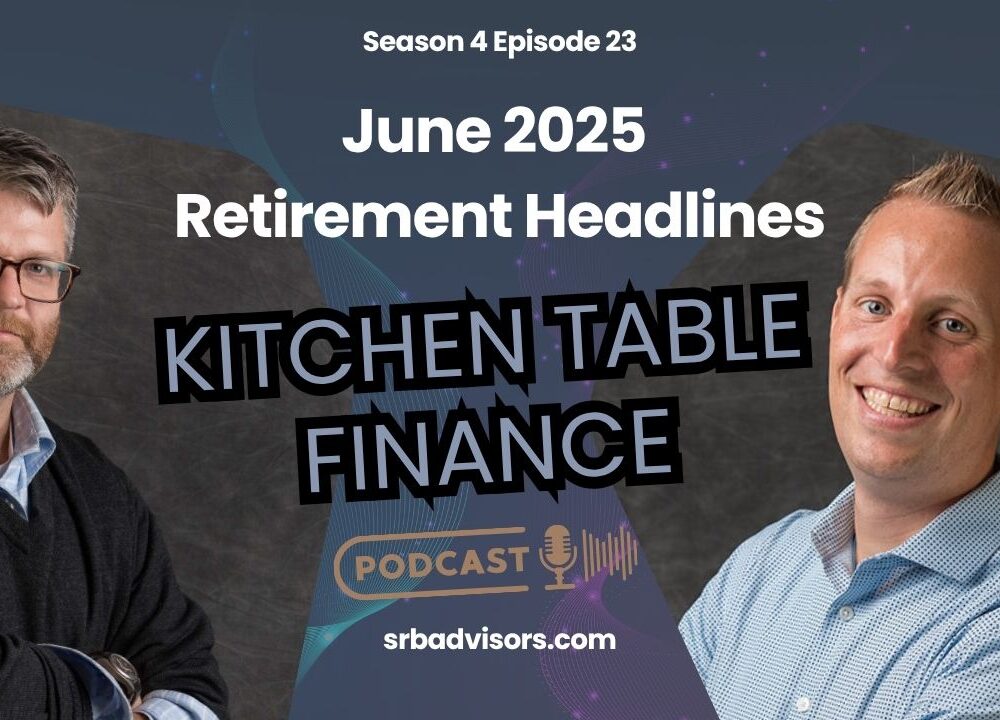Do Financial Advisors Provide Value?

by Cade Campbell, 2023 Summer Intern
Are financial advisors necessary and do they provide value in a world where online portfolio tools and retirement calculators are available online at little cost? Does it make sense to hire a financial advisor? Typical advisors charge a fee between 0.75% to 1.5% of assets for their services. At first glance, these fees may appear expensive, however, some studies suggest advisors provide additional net returns to their clients ranging anywhere from 2.88% to 5.2%.
Listen to the podcast episode about this topic HERE
Watch the YouTube Video HERE
In addition to portfolio advice financial advisors empower individuals to achieve their financial goals and navigate the financial landscape with confidence by providing an objective, outside voice.
A study conducted by Vanguard, a leading investment management company, attempts to provide a quantitative analysis of the value financial advisors provide to their clients. The study examines services such as asset allocation, portfolio rebalancing, behavioral coaching, asset location, and withdrawal in order to ascertain their effective worth.
Asset allocation is about spreading your money across different types of investments, such as stocks, bonds, and cash, and their subcategories, to reduce your risk In today’s world, with the availability of robo-advisors, index funds, exchange-traded funds (ETFs), and online programs, anyone can create a portfolio rivaling what a financial advisor offers. Therefore, it becomes challenging to assign a specific return to each individual client solely based on asset allocation.
When it comes to asset allocation, an advisor’s value comes from their ability to understand the client’s needs and connect them to the proper portfolio. This includes clients’ risk tolerances, unique family situations, tax complexities, and other intangible factors that algorithms cannot capture. While a robo-advisor or a balanced fund may build a similar portfolio, they cannot answer specific client questions or provide personalized guidance, or provide the client with confidence that they have made the correct asset allocation decision Having an advisor available to reaffirm these decisions and adapt when necessary can help clients make it through tough market environments.
Beyond asset allocation, advisors provide due diligence to ensure the portfolio is implemented properly, largely by assessing investment expense. Vanguard’s study found that by choosing low-cost investment options, investors can save around 0.3% annually. Low-cost options are available to everyday investors, but it requires time and research to find them. However, it’s important to note that not all advisors use the lowest-cost strategies, and there may be valid reasons for not using low-cost alternatives. So, Vanguard’s assessment of asset allocation should be considered in the context of individual circumstances and the value of one’s time.
Portfolio rebalancing is an important yet often overlooked tool in investing.
Rebalancing means periodically returning the asset allocation to its targets, selling those that have grown too big, and buying those that are down in value with the proceeds. When portfolios do not undergo regular rebalancing, they tend to deviate from the intended asset allocation or investment strategy, resulting in increased risk. This is known as portfolio drift. While risk-tolerant investors may not find the need for rebalancing relevant, most investors have some level of aversion to risk
The Vanguard study demonstrates that from 1960 to 2021, a rebalanced 60% stock and 40% bond portfolio had a significantly lower risk compared to a portfolio allowed to drift. It is worth noting the unbalanced, higher-risk portfolio was rewarded with a marginally higher return for accepting the greater volatility, but most investors want to stay within their risk tolerance. Periodic rebalancing enforces a discipline on the portfolio to maintain the allocation targets. Vanguard suggests portfolio rebalancing can generate up to an annual 0.14% additional return for the client.
Deciding how to divide assets between IRAs, Roth IRAs, taxable accounts, and other investment vehicles can be very complicated. Each account type carries different tax treatments, contribution limits, withdrawal rules, and other important considerations, and understanding the nuances of each account is important to maximizing returns and minimizing taxes over time. According to Vanguard financial advisors ability to place the right investments in the right accounts can provide additional returns of up to .6%per year..
Vanguard attributes a further additional return of 1.2% per year to what they designate as a withdrawal order. Advisors strategically structure the spending order of portfolio assets to achieve tax-efficient strategies during retirement. Calculating how much to withdraw each year, projecting taxes, and deciding which accounts to withdraw from can be tricky. To maximize the benefits of withdrawal plans advisors should build a customized plan for each client’s specific circumstances. Advisors typically review income strategies annually as account values and income needs evolve.
Behavioral coaching is the most valuable service an advisor offers.
Without an advisor, individual investors tend to make mistakes based on emotion. Vanguard’s article eloquently describes this behavioral impact, arguing that “advisors act as emotional circuit breakers by helping clients overcome the urge to chase returns or panic in emotionally charged markets. In doing so, they can prevent significant wealth destruction”. Personally, I love this analogy because I have witnessed the power of advisors guiding clients through difficult financial environments. Advisors act as financial therapists, assisting clients in navigating major life events such as death, divorce, births, and everything in between. This includes rough markets and economic worries and is often an understated reason for hiring an advisor.
If anyone can purchase an S&P 500 index fund and match the market’s return, why do most individual investors underperform the market by over 3% a year? The 2023 Quantitative Analysis of Investor Behavior revealed the S&P 500 has 30-year annualized returns of around 10%, while the average individual investor only achieved a 6.8% return. According to the same report, “One major reason why investor returns are significantly lower than index returns is that many investors withdraw their investments during market crises”. Every investor needs an emotional circuit breaker to help manage their decisions. Too many individual investors buy high and sell low. If an advisor did nothing else but provide guidance, knowledge, and “financial therapy,” their help would still be valuable. Vanguard argues that behavioral coaching provides 1%-2% additional return each year. While this is a wide range, I believe it accurately illustrates the value of behavioral coaching.
After tallying the returns provided by the Vanguard study an additional 3% return materialize by hiring an advisor. While 3% may not seem like much, it has a profound impact on investment growth. For example, consider two investments compounding for 35 years. One at a rate of 4% and another at 7%. Suppose you invest $20,000 with a 4% rate of return; in 35 years it will grow to $78,921.78.
source: Paulmerriman.com
On the other hand, the same $20,000 investment growing at a rate of 7% for 35 years will reach $213,531.63. Nearly triple the return. As time goes on, the gap in returns becomes more substantial. Grasping the power of exponential investment growth can challenge us as we tend to think linearly. To quote one of Albert Einstein’s profound statements, “Compound interest is the eighth wonder of the world. He who understands it earns it; he who does not pays it.” So, even though a 3% difference in returns may not seem substantial initially, its long-term impact on wealth accumulation is truly remarkable. It highlights the importance of hiring an advisor and taking advantage of the benefits they provide.
The impact of a financial advisor goes far beyond investment returns.
They offer invaluable benefits to significantly influence their clients’ financial situations. This value extends well beyond the fees they charge, as they empower individuals to achieve their financial goals and build a more secure future. Choosing to engage the services of an advisor is not a decision to take lightly. It is essential to evaluate an advisor’s principles, investment strategy, firm structure, planning approach, and fee structure before making a decision. They will play a significant role in enhancing your financial well-being and generating immense value in your life.
About Shotwell Rutter Baer
Shotwell Rutter Baer is proud to be an independent, fee-only registered investment advisory firm. This means that we are only compensated by our clients for our knowledge and guidance — not from commissions by selling financial products. Our only motivation is to help you achieve financial freedom and peace of mind. By structuring our business this way we believe that many of the conflicts of interest that plague the financial services industry are eliminated. We work for our clients, period.
Click here to learn about the Strategic Reliable Blueprint, our financial plan process for your future.
Call us at 517-321-4832 for financial and retirement investing advice.
Share post:
